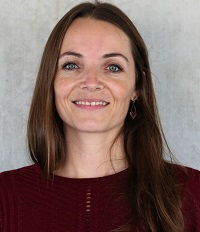
GONSETH NUSSLÉ Semira
Médecin agréée
Promotion de l'Innovation
- Informations professionnelles
- Biographie
Diplômes : Diplôme Fédéral de Médecine, Université de Lausanne
Master in Science, Public Health, London School of Hygiene and Tropical Medicine
Titre de spécialisation FMH en Santé publique et prévention
Master in Science, Public Health, London School of Hygiene and Tropical Medicine
Titre de spécialisation FMH en Santé publique et prévention
Titres académiques : M.D.
Domaine de recherche : Enquêtes et cohortes populationnelles
Epidémiologie des maladies chroniques
Epidémiologie de la COVID-19
Epidémiologie épigénétique
Transfert des technologies et des connaissances
Epidémiologie des maladies chroniques
Epidémiologie de la COVID-19
Epidémiologie épigénétique
Transfert des technologies et des connaissances
Dre. Semira Gonseth Nusslé holds a Doctorate in Medicine from the University of Lausanne. She holds a Master of Science in Public Health from the London School of Hygiene and Tropical Medicine, and is board-certified in medical prevention and public health in Switzerland. She has held several positions in the clinical and academic medical field, including postdoctoral researcher at the University of California, San Francisco and the University of California, Berkeley. In addition, she has led various funded research projects, covering a range of topics related to public health, including epigenetics, nutrition data collection, and the effects of smoking and alcohol consumption. As an internationally-renowned academic researcher, she has established an h-index of 17. She currently serves as the Co-founder and Chief Medical Officer of Genknowme S.A., a CHUV/UNIL spin-off company specializing in epigenetic testing for lifestyle and healthy aging. The company has 6 employees and commercializes blood tests since 2020 on the Swiss and European medical markets. She also works part-time as an accredited physician for Innovation at the Center for Primary Care and Public Health Lausanne (Unisanté).